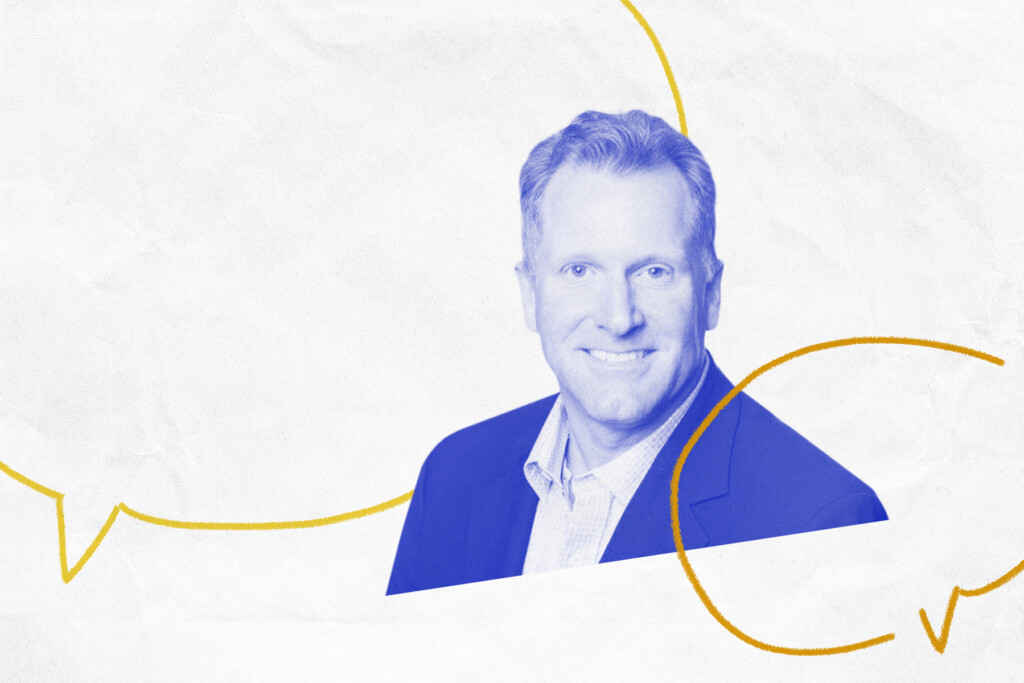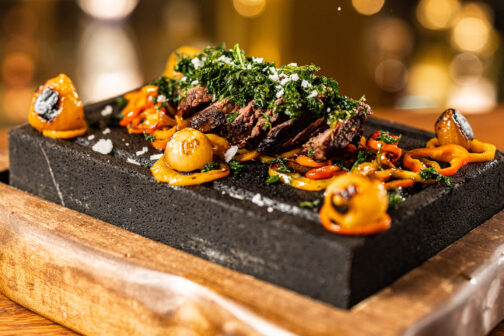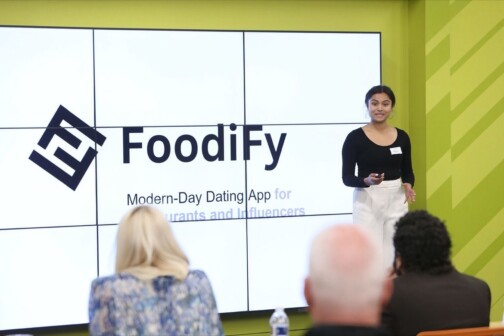Richardson is known for its Asian eateries, but I find also a standout city for enjoyable caffeination stations, too. I have several regular coffee shop stops whenever I find myself in Richardson, but my latest go-to has been Staycation, just off North Central Expressway near East Belt Line Road. Founder Nicole McClendon launched the brand at the close of 2021, after a trip to Costa Rica inspired her to embrace moments of relaxation in everyday life—rather than relying on big trips to fulfill her need for restoration and rejuvenation.
As Brian Kava, CEO of Plano-based Pickup, arrives for our interview, I order a simple black coffee from Dallas-based roaster Tweed. He is not much of a coffee drinker—he prefers sweet tea—but has decided to embrace adventure and enjoy the ambiance at the shop just 15 minutes from Pickup’s headquarters.
Kava became CEO of the fast-growing last-mile delivery company after its founder, Brenda Stoner, stepped into a chairman role in February. The company specializes in delivering what he calls “big and bulky” items, hiring veterans, retired teachers, and former first responders to move things such as cribs, furniture, auto parts, and more. We find a couple of seats at a back table and begin our conversation.
D CEO: How did you make your way to Dallas and Pickup?
KAVA: “I grew up in Virginia. I went to school there and studied marketing and advertising. What I found is agencies have a bunch of awards and great creative, and then a frustrated client, who is saying ‘But my sales aren’t up.’ In pulling research and data, we found that [the ads] were good at getting people in the store, but then they weren’t buying.
“I crossed paths with this guy at an industry show, and he was starting up a new division. He was explaining it to a CEO, and he said, ‘I’ve been in the marketing business for 20-plus years, and I have to solve the last three feet of the sale—the influences that stores have on brand, merchandise, and all these things.’ It got at this idea of changing consumer behaviors and thoughts about buying costs while they were at the store. A light bulb went off.
“What I discovered is that advertising could bring someone into a store, and in the store, there’s a merchant or the store associate who would say ‘You don’t want that. You want this,’ and they were completely impacting the path of the purchase. I thought ‘This is the thing I need to do,’ and I worked on that for 25 years.
D CEO: What did it involve?
KAVA: “It was business process outsourcing work to brands or retailers that outsource their sales, or their training staff, or their merchandise, to another company to represent their brand and store. So, for 25 years, I have focused on getting the product off the shelf, and into somebody’s cart.
“Then comes around Pickup, and it’s taking the product from when you buy it to the home. The intriguing part was the extension of that customer journey. I was part of half of it, and Pickup held that next half, and it just seemed like such a natural fit.
“They were just coming out of their Series B and really starting to energize growth. A part of my background was at startup divisions and driving growth and transformation, and that’s what they needed. They hired me as a chief revenue officer in September 2021. They came in and really ignited that sales engine, starting to build up another partner relationship. Then, over a couple of months, the board decided it needed new leadership for the foreseeable feature and for the next growth stage and Series C and appointed me in February.”
D CEO: What has Pickup’s funding journey been like, and what are the goals for the new Series C?
KAVA: “We just finished a series B extension. Now, we are heading toward a Series C close to the end of the year. The B round was about creating a broader geographical footprint. We were around 30 U.S. cities at the beginning of 2021, so the B was around getting national. We are now at 90-plus cities, and we have a target of about 150 million in the U.S. population.
“There are aspirational goals from looking at how do we continue to expand our market footprint, and even looking at international, or looking at the ability to continue to expand our services into different segments and verticals. If it’s successful now through the rest of the year, that obviously opens up a lot more opportunities, and that is what we are hoping for and expecting.
“That will trigger thoughts around how we start to look at different things. It could be mergers and acquisitions. Potentially, new verticals could be much more seamless to acquire and bring some of those businesses in at the same time.”
D CEO: What have been some key changes during Pickup’s recent growth?
KAVA: “We were founded on B2C. It was a direct to consumer, where you go to an app or go to a website. That was when it was very much more regional. Brenda, our founder, started Pickup as Dallas-based, then it went from Dallas to Houston and to some other Texas cities.
“When we went national with the Series B, it changed the way we were thinking about the business. As we as we did that, it became more of an enterprise focus, because to truly get the expansion, that became looking at getting into national retailers.
“That’s really what has opened the door now toward more of the B2B. We started doing that for that footprint, and then we’ve really seen a great deal of success. Most recently, probably in the last six to nine months, even expanding into more of an industrial and commercial footprint for partners in paint and auto, who, much like everywhere else, are trying to grow in the last mile.
“They’d rather use a third-party company—like Pickup—to be able [make runs for parts and materials] on their behalf, and making those runs are clearly more efficient than altering the job. It’s gone to probably 98 percent and 2 percent [B2B and B2C].”
D CEO: What are some retail trends you are seeing, and how are they impacting business for Pickup?
KAVA: “One for sure is the customer mindset. COVID changed a lot. It affected the way we think, the way we shop, the way our home environment is. Even what’s happened with online or ecommerce—buying habits are completely different. That becomes key, and it’s really a driving force now as consumers think about what they want when they shop.
“It’s really three things: first thing is they want it to be around flexibility. Whether it’s food delivery services or anything else, they want to buy when they want it, and they want it when they want. They also are looking for the reliability. And then, the leaders are focused on quality. That is the No. 3 around how customers think today.
“Everything and anything is an extension of the brand, and if it is in any way altered from that, it can be detrimental to the brand. So, especially when we are servicing a company, we are representing them and their brand, and there’s expectations around that. Companies that are having customer experience, and quality, and performance top of mind, those will be the ones that survive.
“They can’t get there with treating customers badly. You have to be thinking about whatever your industry is, what are the standards, how do you exceed the standards, and build your infrastructure around that and let it lead.”
This conversation has been edited for clarity and brevity.
Author







